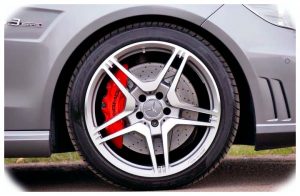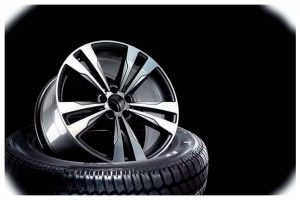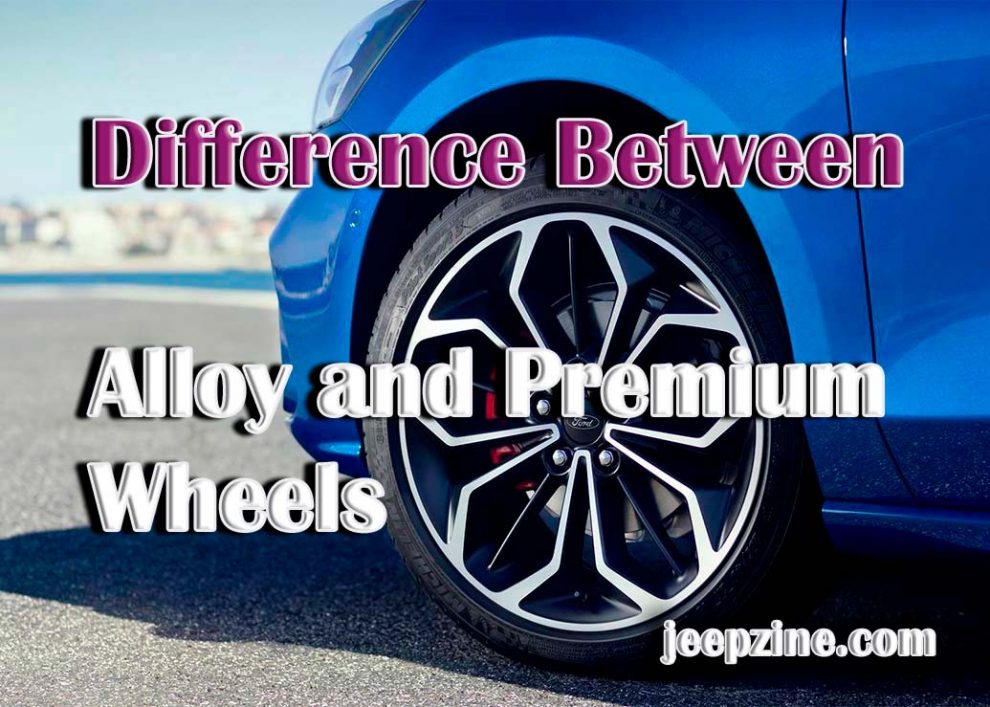The wheels on a car are more than just a fashion statement. They can also play an important role in vehicle performance and handling. The right wheels will enhance traction, improve acceleration, and reduce driving noise. Knowing the difference between alloy and premium wheels can help you choose the best fit for your vehicle.
Role of Wheels in Vehicle Performance
Wheels act as a buffer between the tire and the road, helping to absorb shock from bumps or debris on the roadway. They also provide stability during cornering and braking by reducing friction between the tires and the road’s surface. In addition, larger wheels offer better fuel economy as they require less effort for each revolution than smaller ones.
Common Materials Used for Wheels
Wheels are typically made from either aluminum alloy or steel, although other materials like magnesium or carbon fiber may be used in some applications. Alloy wheels and steel wheels differ in terms of their composition and performance characteristics. Alloy wheels are lighter than steel ones, stronger, and more expensive due to their complex manufacturing process. Premium wheels have additional features, such as chrome plating, which gives them superior strength and durability compared to standard alloy models.
Alloy Wheels: Features and Benefits
Composition and Manufacturing Process

- Casting the wheels into shape.
- Machining the surface for a smooth finish.
- Painting them with a protective coating.
Advantages of Alloy Wheels:
Weight and Performance: One of the main advantages of alloy wheels is that they weigh less than steel ones, making them easier to control while driving. This allows for improved handling, acceleration, and fuel economy.
Aesthetics and Customization: Alloy wheels come in various styles and colors, allowing you to customize your vehicle’s look without sacrificing performance or safety. You can also choose from brushed or polished finishes for added visual appeal.
Heat Dissipation: Alloy wheels can dissipate heat faster than steel due to their lighter-weight construction. This makes them ideal for high-performance vehicles that generate significant heat during operation.
Disadvantages of Alloy Wheels:
Cost: Although they offer superior performance compared to steel wheels, alloy models are much more expensive due to their complex manufacturing process.
Durability Concerns: Alloy wheels are prone to cracking or bending if exposed to harsh road conditions or heavily loaded vehicles. They also require more maintenance and may need to be replaced frequently depending on your driving type.
Premium Wheels: Features and Benefits
Composition and Manufacturing Process
Premium wheels are manufactured from a combination of aluminum alloy, steel, and other metals. This allows for higher levels of strength and durability compared to standard alloy models. The manufacturing process involves:
- Casting the wheels into shape.
- Machining the surface for a smooth finish.
- Chrome-plating them for added protection.
- Painting them with a protective coating.
Advantages of Premium Wheels:
Superior Strength and Durability: Premium wheels are designed to withstand harsher driving conditions than standard alloy models due to their higher quality materials and improved manufacturing process. This makes them ideal for vehicles that will be subjected to heavy loads or off-road use.
Enhanced Performance: In addition to superior strength and durability, premium wheels also offer improved handling characteristics due to their lightweight construction, which helps reduce friction between tires and road surfaces. This can result in increased acceleration as well as improved fuel economy.
Exclusive Designs: Another advantage of premium wheels is that they come in various exclusive designs that can add visual appeal to your vehicle.
Disadvantages of Premium Wheels:

Limited Availability: Premium wheels are not widely available, making it difficult to find the perfect design for your vehicle.
Comparing Alloy and Premium Wheels
Performance and Handling: Alloy wheels offer superior performance compared to steel wheels due to their lighter weight construction which helps reduce friction between tires and road surface. However, premium wheels offer enhanced performance characteristics due to their high-quality materials and improved manufacturing process.
Aesthetics and Customization: Both alloy and premium wheels come in various styles, colors, and finishes, so you can customize the look of your vehicle without sacrificing performance or safety. However, premium wheels tend to be more exclusive in terms of designs which can add an extra level of visual appeal.
Price and Value: Alloy wheels tend to be more affordable than premium ones due to their simpler manufacturing process, which results in lower production costs. However, the cost difference may be offset by the improved performance characteristics offered by premium models.
Durability and Maintenance: Alloy wheels are more prone to cracking or bending than premium models due to their lighter weight construction. Premium wheels tend to be stronger and more durable, but they require more maintenance and may need to be replaced sooner due to their higher cost.
How to Choose the Right Wheels for Your Vehicle
Assessing Your Needs and Priorities: The first step in choosing the right wheels for your vehicle is assessing your needs and priorities. Consider how you will use your vehicle, what features you need, and what type of aesthetic appeal you desire.
Considering Your Budget: Once you have assessed your needs and priorities, consider your budget when deciding on a wheel type. If you are looking for a lower-priced option that still offers good performance, alloy wheels may be the better choice. If price is not an issue, but performance is paramount, premium wheels may offer the best value for money.
Researching Brands and Manufacturers: It is important to research various brands and manufacturers before purchasing this can help ensure you get quality products at competitive prices. Pay attention to customer reviews as well as warranties offered by each brand or manufacturer so that you can rest assured that your purchase will be a good one.
Consulting a Professional: It is always a good idea to consult a professional when it comes to purchasing wheels for your vehicle. A knowledgeable mechanic or automotive shop can help you evaluate your options and make the best decision for your budget, needs, and vehicle.
Conclusion
Wheels play a crucial role in determining a vehicle’s performance, aesthetics, and overall driving experience. Whether you’re considering alloy wheels or premium wheels, it’s essential to understand their respective advantages and disadvantages. While alloy wheels are lightweight and enhance performance, premium wheels offer superior strength and exclusive designs. Your choice will depend on your priorities, budget, and the type of driving you do. Consulting with a professional and researching brands can ensure you make an informed decision that will enhance your vehicle’s performance and aesthetics.





Add Comment